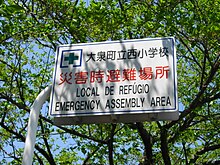Geographic distribution



- Sri Lanka: Formerly known as Ceylon (Ceilão in Portuguese), the island's first European visitors were Portuguese people, who gave the island its original name. The island is home to a Portuguese Burgher minority who speaks Sri Lankan Portuguese Creole. Sri Lanka participated in the Jogos da Lusofonia in 2006 and 2014.
- India: The state of Goa was a part of the Portuguese Empire until 1961. India participated in the Jogos da Lusofonia in 2006 and 2014. Goa is awaiting the permission of the Indian Government to join the CPLP as an observer.[3] In Goa, most of the relatively few speakers of Portuguese are older people. The Union Territory of Dadra and Nagar Haveli and Daman and Diu was also part of Portuguese India. As in Goa, the dwindling number of Portuguese speakers are also older people. Daman and Diu are also home to Indo-Portuguese Creoles. It is estimated that there are 3% – 5% of fluent speakers of Portuguese in Goa, Daman and Diu. The language is still spoken by about 10,000 people, in 2014, an estimated 1,500 students were learning Portuguese in Goa.[4]
- Malaysia and Singapore: The Malaysian state of Malacca and city-state of Singapore are homes to the Gente Kristang a community of Eurasians who claim Portuguese descent and speak Papia Kristang, a Portuguese-lexified Creole. The Portuguese settlement at Malacca is a source of tourism for the state and the Lusophone heritage is visible in cuisine, architecture and folklore of the Kristang people. Pending approval from the Malaysian Government, Malacca may join the CPLP as an associate observer.
- Macau: Portuguese is a co-official language alongside Chinese in the Chinese special administrative region of Macau. It has become the centre for Portuguese learning in Asia and has become the focus through which China relates diplomatically to the member states of CPLP. Macau was the host city for the first Lusophone games in 2006. While the Macanese Language is by now critically endangered with less than a hundred speakers, the number of speakers of Portuguese has also decreased since the handover in 1999. But enrollments for private Portuguese classes have tripled, to 1,000, since 2002; that prompted public schools here to offer Portuguese, drawing more than 5,000 students.[5] It is now estimated that about 3% of the population speak Portuguese as their first language, while 7% professes fluency.[6]
- East Timor: The Southeast Asian country added Portuguese as an official language as it gained independence from Indonesia in 2002. According to a 2004 census, 36 percent of respondents said they had "a capability in Portuguese".[7] The inter-ethnic lingua franca, Tetum has a large number of loanwords derived from Portuguese making the latter relatively easy to learn for speakers of the former.
- Japan: As of 2023, there were approximately 210,563 (in June, 2023)[8] Brazilians living in Japan.